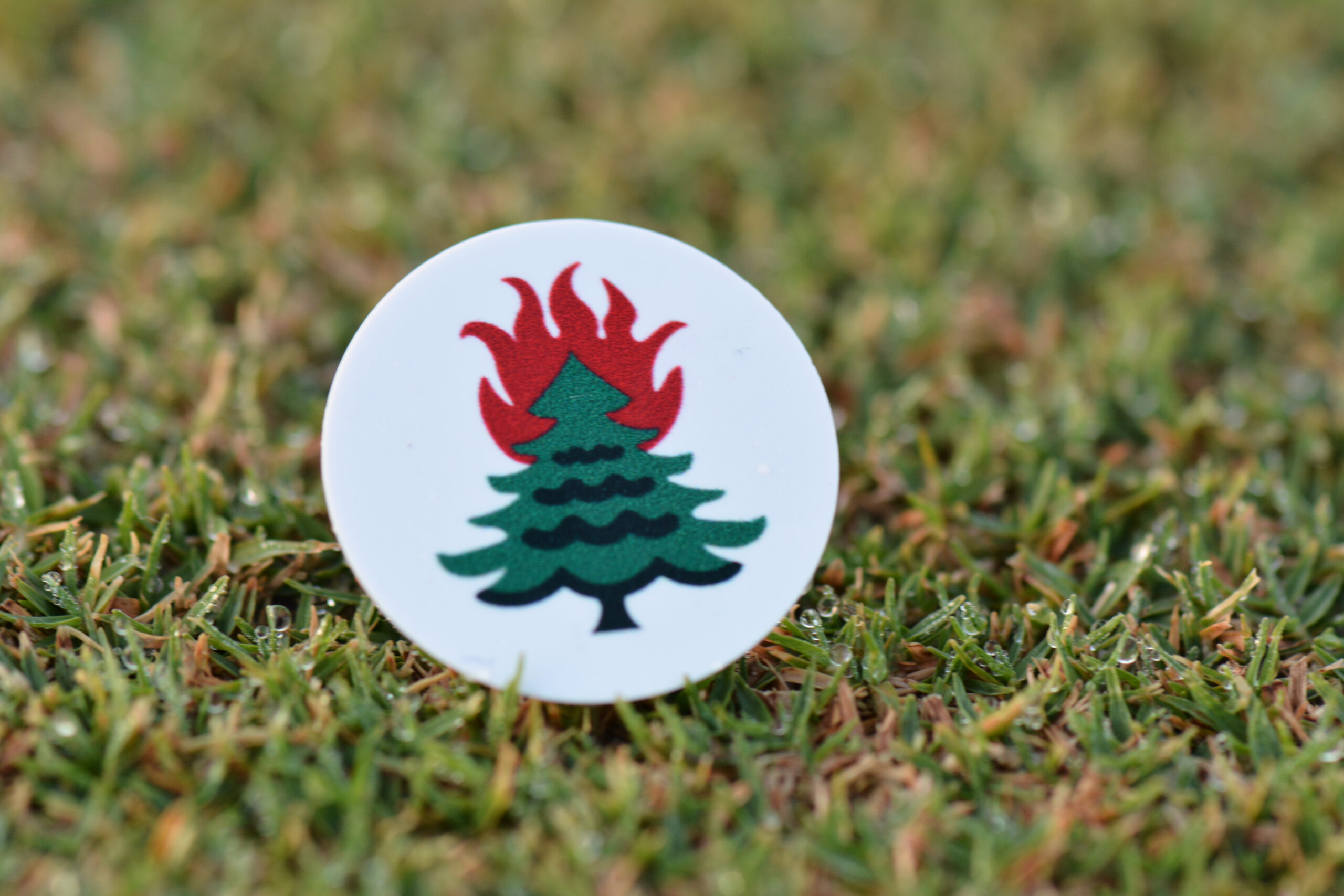Should we ban plastic tees? Evolve Golf discusses the environmental impact of golf tees on the game of golf.
Recently, Royal North Devon Golf Club, England’s oldest golf course, announced it would ban its members from using plastic golf tees effective January 1, 2020.
This decision not only sparked media interest, but also ignited an industry-wide conversation around the environmental impacts of the types of golf tees we, as golfers, stick in the ground.
Founded in 1864 and designed by the legendary Old Tom Morris, it goes without saying that the hallowed grounds of Royal North Devon have seen many iterations of golf tees, including the use of a small mound of sand – the original method used to tee a ball.
So, why the decision to move away from plastic tees? Why now? And is wood the answer?
First in Flight
Okay, that’s a lot of questions.
In 2003, Evolve Golf, a start-up company from Wilmington, North Carolina, broke into the golf industry.
It’s mission?
Create golf tees that are better for the golf course, better for the golfer, and better for the planet.
Sounds promising.
Yup. Today, its flagship product is called the Epoch – a composite golf tee formulated from recycled plastics.
To date, more than 1,000 golf facilities have switched from wood tees in favor of the Epoch. Remarkably, more than 300 million Epoch golf tees have been played without a single report of a mower being damaged and more importantly, no danger to wildlife found on or near a golf course.
Further, the company estimates that one Epoch is equivalent to the usage of 18 wood tees, a refreshing statistic for golf course superintendents who are adamant about ridding tee boxes of troublesome broken tee litter.
Conversely, golfers break an average of six wood tees per round, which if multiplied by an estimated 850 million rounds played per year globally, that amounts to roughly five billion wood tees a year!
Bamboo
Is bamboo a better option?
Maybe.
It takes five to seven years for bamboo culm (a single stalk) to grow large enough to be made into golf tees. However, mills can only produce 500 golf tees per culm, so it takes an awful lot of bamboo to keep up with golf tee demand.
Additionally, 75 percent of the material is lost when milling the dowels into either a hardwood or bamboo tee. The sawdust is then burned to power the mill increasing CO2 emissions. Wood and bamboo tees are finally transported from oversees on large freighters further increasing CO2 emissions.
Making golf tees out of wood or bamboo is not the highest and best use of these materials. Wouldn’t it be better to use bamboo and hardwood materials to make products that can last decades vs. a golf tee that will last minutes in comparison?
Playing Epoch golf tees saves trees.
Epoch golf tees are manufactured in the United States using electric injection molding presses. Almost no material is wasted when making Epoch golf tees.
Did we mention Epoch golf tees can also be recycled?
Next year, the company is introducing Project TeeClaim – a program for their golf courses to send back discarded Epoch golf tees to be made into new golf tees.
Wood Tees that Plant Trees
So, wood is bad?
As long as golf is played, wood tees will always be a consideration for traditional golf clubs.
But what if there was a way to give back to the environment?
After all, we need trees to create wood tees and we especially need healthy forests to produce clean water, clean air, and healthy habitats for wildlife (kind of important!).
Enter Evolve Golf’s Project Good Woods, a line of bamboo and hard wood golf tees.
The best part?
A portion of every Project Good Woods golf tee sale goes to Arbor Day foundation to support reforestation and urban watershed projects.
Since the inception of PGW, Evolve Golf has helped plant more than 25,000 trees in areas severely impacted by not only hurricanes, but also by wildfires in the U.S.
Talk about cause marketing! Wood tees that plant trees!
Are Compositable Golf Tees the Future of Golf Tees?
Okay, composites and wood. I can see the benefits to both.
What else do you have?
In the spring of 2020, Evolve Golf will be introducing 100 percent compostable golf tees made entirely from annually renewable plants.
We encourage golf facilities interested in compostable golf tees to contact us right away to be added to our waiting list (shameless plug, but hey we have been working on this one for 15 years!)
Not All Tees Are Created Equal
Royal North Devon Golf Club’s decision to do away with plastic is admirable. In fact, as a company that thinks about the environment, we applaud their steadfast approach and determination.
Moreover, this action has opened the door of curiosity. Choices we make (on and off the golf course) have repercussions for our environment and future generations to come.
As a leader in sustainable product design in the golf industry, Evolve Golf will continue to innovate and is committed to transparency. Evolve Golf proudly offers three different types of golf tees – all of which, are eco-friendly.
Golf is a game that has been around for more than 500 years and we are committed to sustainable practices that ensure it is enjoyed for many more to come.
The game did its part in 1889 to get our golf balls out of the sand and now in 2020, it’s time for golfers to get their heads out of the sand and play golf tees that support our environment.

 SweetMRX Ball Markers
SweetMRX Ball Markers
Pingback: Plastic or Wood Golf Tees? - Bye Bogey